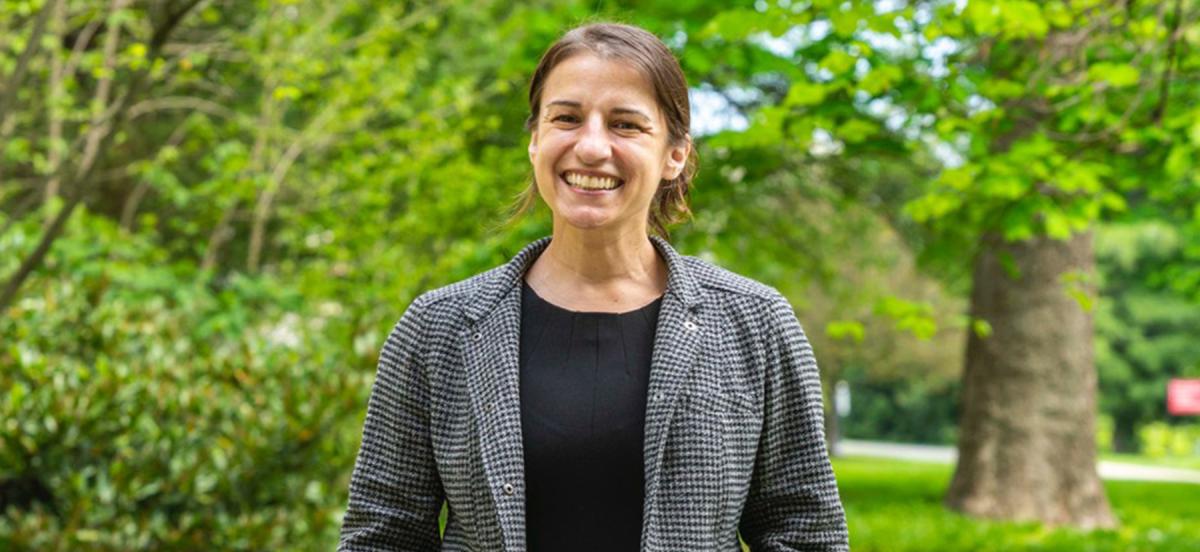Lou Charkoudian Awarded NSF Grant

Lou Charkoudian isn't just associate professor of chemistry at Haverford College. she is also an alum (Class of 2003). Photo by Patrick Montero.
Details
The associate professor of chemistry studies natural product pathways, and this new funding from the National Science Foundation will support research that explores why these biological events cannot be recapitulated outside their natural contexts.
In Lou Charkoudian’s lab at Haverford, the associate professor of chemistry studies naturally occurring protein assembly lines that make molecules that can be repurposed as therapeutic agents, such as antibiotics and antivirals. Charkoudian hopes to eventually be able to develop sustainable access to these important molecules by harnessing the biocatalytic prowess of microorganisms. After years of research, what stands in the way of meeting that goal? The fact that foundational components of these proteins cannot be recapitulated outside their native context.
A new $447,000 grant from the National Science Foundation aims to change that by supporting new research in this area over the next four years.
“We aim to understand why some of these proteins cannot be taken outside their natural contexts and we want to discover routes to obtain these proteins so that they can be studied in the lab,” said Charkoudian. “By the end of the project, we hope to obtain samples of three distinct classes of proteins: the acyl carrier protein, the phosphopantetheinyl transferase, and the ketosynthase chain length factor. We selected these three targets because together they can make molecular connections that are important in medicinally relevant agents.”
This NSF-funded project also includes two community-engagement components. One builds on a BioArt outreach program her lab has done for many years, using bacterial strains to produce living images and bio-based paint to illustrate the fundamental beauty of science. As part of this new research project, photos of student-made pieces of biological art will be turned into greeting cards.
“Students can caption these cards with information about the chemistry and biology behind the art and then send copies to family and friends to spread joy, knowledge, and scientific appreciation,” said Charkoudian.
Another component is a Symbiotic Professional Development Seminar Series that will help connect Haverford undergrads with graduate students at research universities to develop their professional networks and learn about different career paths, concepts, and techniques across a range of scientific fields.
Students are always at the forefront of Charkoudian’s plans. Over 25 of them contributed work that was presented as preliminary data in her NSF grant proposal, and many will play central roles in conducting the next phases of the research—designing experiments, analyzing results, presenting findings, co-authoring publications—as well as leading the greeting card project. Many more still will benefit from the professional development element of the project.
Those involved will not only get experience with concepts and techniques from a range of fields— including bioinformatics, molecular biology, enzymology, and organic chemistry—but they will be helping to move forward the work the Charkoudian lab has been doing for almost a decade.
“Over the past nine years, our team has steadily pushed to increase our understanding of how these microbial molecular assembly lines evolved and also how the component proteins behave when we take them out of the native organism and into a laboratory setting,” said Charkoudian. “This project represents the culmination of a lot of hard work and we are finally at the place where we are reconstituting some of these biosynthetic steps in the lab. We’ve been waiting for this moment and we are so excited for this next phase of our research!”



